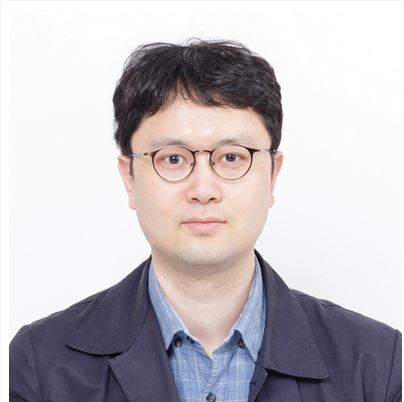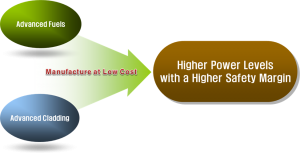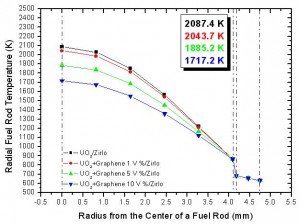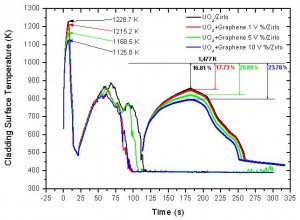The commercial nuclear power industry is interested in advanced fuels that can produce higher power levels with a higher safety margin and be manufactured at low cost. Requirements of advanced fuels are as follows: high thermal conductivity, chemical stability (low reactivity with water) and low manufacturing cost. Although UO2 fuel is chemically stable, its thermal conductivity is low. In the nuclear engineering field, the thermal conductivity of fuels is a very important parameter for the optimum design and safety analysis of a nuclear system. This is because the thermal conductivity of fuels significantly affects the internal energy of the nuclear fuel by heat transfer through the coolant. Therefore, the safety analysis using fuel thermal conductivity is necessary for the prediction of thermal-hydraulic behavior. If graphene is mixed in UO2 fuel, it is chemically stable and its thermal conductivity will be enhanced. The benefits increased monotonically with increasing thermal conductivity in terms of reduced radial fuel rod temperature and peak cladding temperature (PCT). It is confirmed that the UO2/graphene composite fuel can lower the radial fuel rod temperature and peak cladding temperature during LBLOCA (Large Break Loss of Coolant Accident) through the MARS-KS (Multi-dimensional Analysis of Reactor Safety-Korean Standard) code.
Fig. 1-1 Radial fuel rod temperature according to volume fraction of UO2/Graphene composite fuel when the cladding material is Zirlo
Fig. 1-2 Cladding surface temperature according to volume fraction of UO2/Graphene when the cladding material is Zirlo




